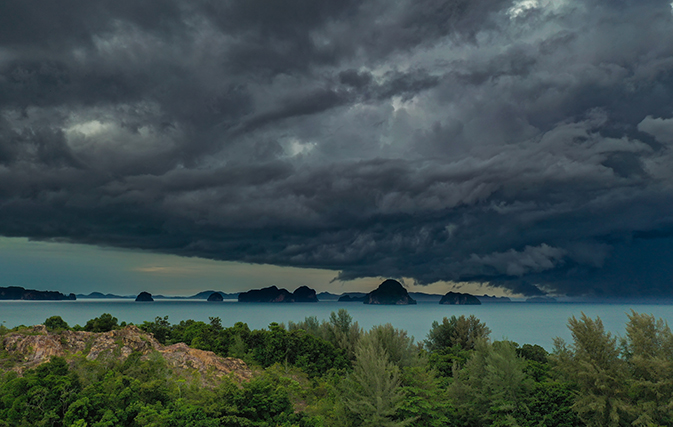MILAN — Record-breaking rain produced floods in a vast swath of Italy’s Tuscany region as Storm Ciaran pushed into the country overnight.
The storm’s death toll in western Europe hit 12 on Friday.
Italian Civil Protection authorities said 200 millimeters (nearly 8 inches) of rain fell in a three-hour period, from the coastal city of Livorno to the inland valley of Mugello, and caused riverbanks to overflow. Video shows at least a dozen cars getting pushed down a flooded road.
Climate scientists say human-induced climate change has led to heavier rainfall during storms like Ciaran, often resulting in more severe damage.
“If the conditions are different than 20 years ago, it is obvious to everyone,” Nello Musumeci, the government’s minister for civil protection told Sky TG24, noting that weather systems in Italy have become more tropical in nature.
Ciaran swept across Spain, France, Belgium, the Netherlands and Germany on Thursday. The storm devastated homes, caused travel mayhem and cut power to a vast number of people.
Throughout Tuscany, train lines and highways were disrupted and schools were closed. Hundreds of people were unable to get home, including about 150 stranded in Prato after a train line was suspended Thursday night. Some 40,000 people were without electricity on Friday.
The mayor of Prato expressed shock at the force of the flood that devastated the city overnight. By early Friday, residents were working to clean the damage.
“A blow to the stomach, a pain that brings tears. But even after an evening and night of devastation, we are pulling up our sleeves to clean and bring our city back to normality,” Mayor Matteo Biffoni posted on social media.
Florence Mayor Dario Nardella told Sky TG24 that the Arno River, which runs through the center of the city, had reached the first level of alert, with the highest levels forecast for midday. Neither he nor the governor expected the river to overrun its banks.
In Austria’s southern Carinthia province, which borders Italy and Slovenia, wind and heavy rain on Thursday night led to landslides, blocked roads and power cuts. About 1,600 households were without electricity early Friday, the Austria Press Agency reported.
The storm receded in northern France and the Atlantic coast on Friday, but heavy rains continued in some regions as emergency workers cleared away debris from the day before. Meanwhile Corsica in the Mediterranean faced unusually fierce winds Friday – up to 140 kph (87 mph) – and regions in the Pyrenees in the southwest were under flood warnings.
More than a half-million French households remained without electricity for a second day, mainly in the western region of Brittany. Trains were halted in several areas and many roads remained closed.
Meanwhile a wildfire abetted by storm winds in eastern Spain has burned some 2,000 hectares (4,900 acres) of land and forced the evacuation of 850 people from four towns, officials said Friday.
Some 200 firefighters and army emergency unit soldiers were deployed to try to extinguish the day-old blaze near the eastern town of Montitxelvo. The regional government of Valencia said it hoped five water-carrying planes and helicopters would be deployed in the operation.
Regional president Carlos Mazon called on people to avoid travel in the area or activities in forests that could start fires.

